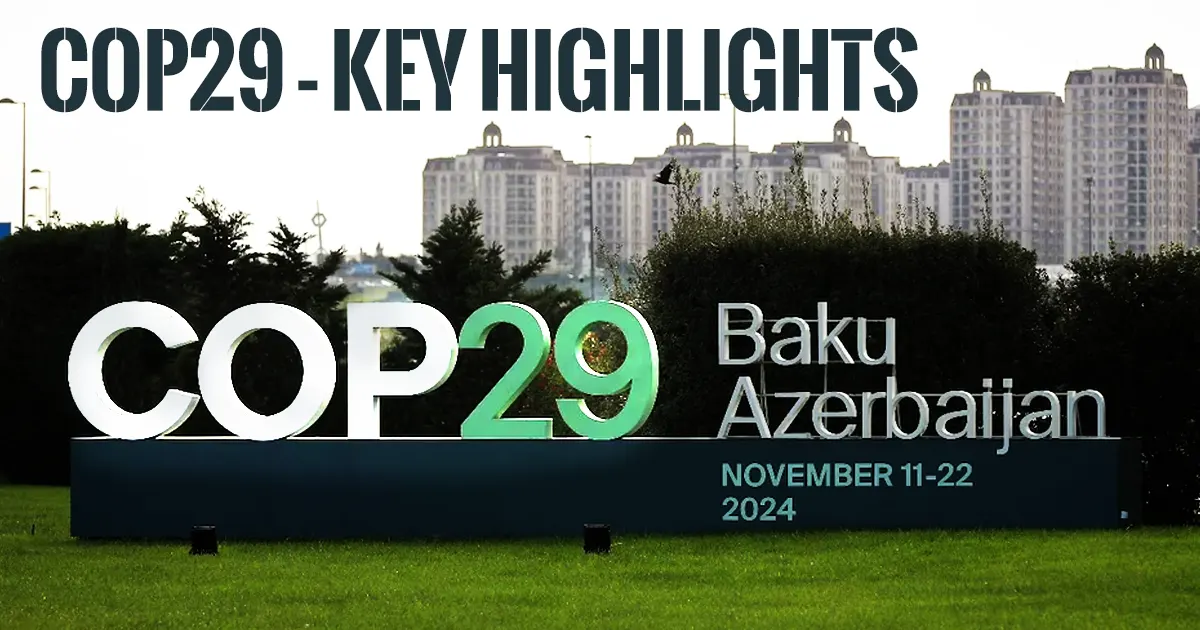GS 3 – Environment

New Climate Finance Goal:
- A major achievement at COP29 was the establishment of the New Collective Quantified Goal on Climate Finance (NCQG).
- This goal aims to increase climate finance for developing nations to $300 billion annually by 2035, a significant rise from the previous target of $100 billion.
- Developed countries are expected to lead this effort.
- Additionally, the goal is to raise global climate financing to $1.3 trillion annually by 2035, from both public and private sources, to help developing countries adapt to and mitigate climate impacts.
Carbon Markets Agreement:
- COP29 reached a milestone agreement on carbon markets. It finalised mechanisms for country-to-country carbon credit trading (Article 6.2 of the Paris Agreement) and a centralised carbon market managed by the UN (Article 6.4 of the Paris Agreement).
- Article 6.2 allows bilateral agreements between countries for carbon credit trade, while Article 6.4 seeks to develop a global carbon trading system under the UN.
Methane Reduction Declaration:
- Over 30 countries, including the US, Germany, UK, and UAE, signed the COP29 Declaration on Reducing Methane from Organic Waste (India did not sign).
- The declaration focuses on reducing methane emissions from waste, which account for 20% of global methane emissions.
- It prioritizes five key areas: Nationally Determined Contributions (NDCs), regulation, data, finance, and partnerships.
- Countries are encouraged to incorporate methane reduction targets in their NDCs.
- This initiative builds on the Global Methane Pledge, aiming for a 30% reduction in global methane emissions by 2030.
Indigenous Peoples and Local Communities:
- COP29 underscored the critical role of Indigenous Peoples and local communities in tackling climate change.
- The Baku Workplan was adopted to enhance indigenous participation in climate discussions and integrate indigenous knowledge into climate policies.
- The Facilitating Working Group (FWG) will implement the workplan in a gender-responsive manner, with progress to be reviewed in 2027.
Gender and Climate Change:
- The Lima Work Programme on Gender (LWPG) was extended for another decade, reaffirming the importance of gender equality in climate action.
- A new gender action plan will be developed for COP30 in Brazil, continuing efforts to promote gender balance in climate policy and action.
Baku Harmoniya Climate Initiative for Farmers:
- In partnership with the Food and Agriculture Organization (FAO), COP29 launched the Baku Harmoniya Climate Initiative.
- This platform connects existing climate initiatives in food and agriculture, aiming to simplify access to support and financing for farmers, making it easier for them to adopt climate-friendly practices.




